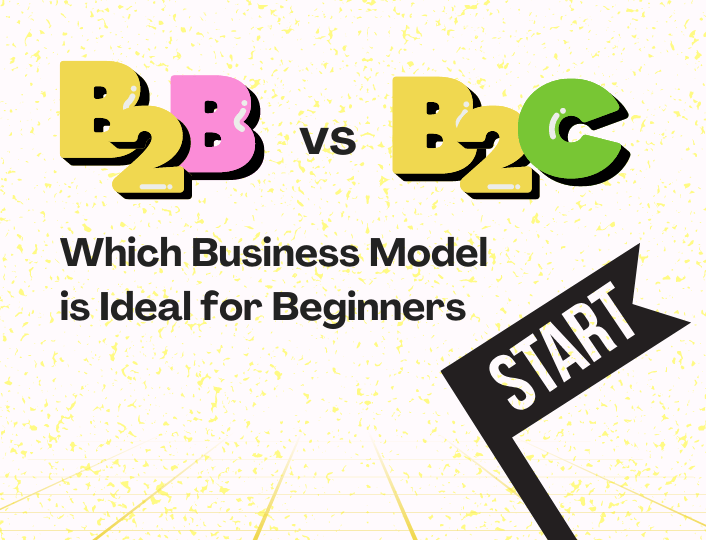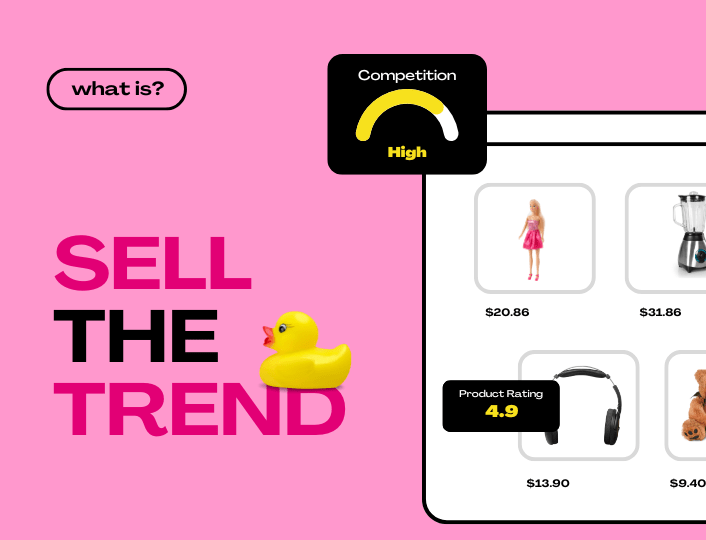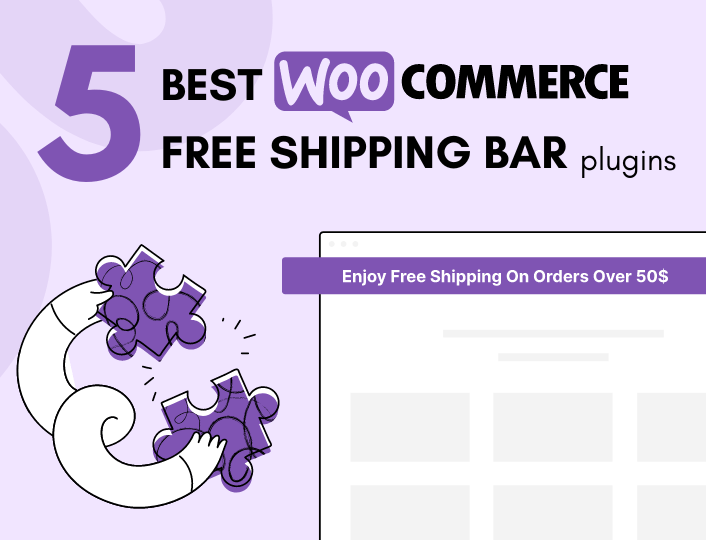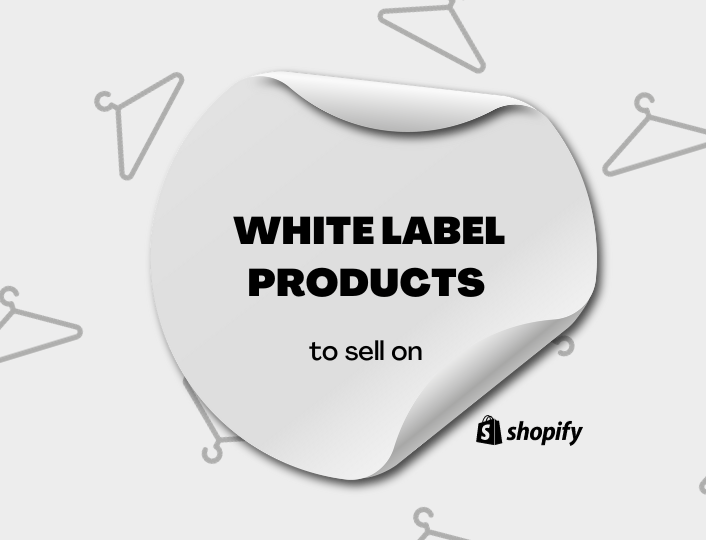Every business has one goal: make money. What business model helps you achieve the goal of recording consistent huge profit margins? B2B or B2C?
If you’re here, this isn’t your first time hearing the terms B2B and B2C. You may be running a business already without knowing if it falls within the B2B or B2C model.
Why should you care?
One, the models have diverging marketing strategies. How you market a B2B product differs from how you do a B2C one. Two, the sales cycle for B2B is arguably longer than that of a B2C (we’d explain why later!). Three, your target audience differs.
If you have some experience running a business or working in a corporate environment, you might find B2B easier to navigate. In short, the ideal model depends on a number of factors.
Let’s examine these factors, as well as other aspects of B2B and B2C, below.
What Exactly is the B2B Business Model?
The B2B model refers to a business model that involves ‘Business-to-Business’ transactions. This model covers a business or company offering services or selling products to another business or company.
Consider Slack, a well-used SaaS tool. Slack is primarily designed to facilitate communication and collaboration amongst teammates. Any Slack user creates an account because they are part of an organization.
If you run a business that caters to the needs of other businesses or companies, your business is using the B2B model. Your product can be physical (such as office furniture, raw materials for production, etc) or digital — like many Software-as-a-Service (SaaS) companies.
For example, Adoric helps Shopify sellers maximize store traffic, boost conversions, and create upsell strategies to increase a buyer’s average order value. We primarily sell to people who run a business on Shopify, so we’re a B2B tool.
Adoric’s Product recommendations for improved sales.
Another example of a B2B business would be a logistics service provider that offers its services to transport raw materials to a manufacturing company.
The B2B business model is also called a B2B market.
What Exactly is the B2C Business Model?
B2C stands for ‘Business-to-Consumer’. The B2C business model refers to a business model that involves transactions between businesses and consumers, who are end-users of the products or services. A B2C business sells products or offers services directly to consumers.
The B2C business model deals with short-term-oriented and spontaneous purchases. A B2C product is designed and developed to cater to the everyday needs of consumers. We refer to these products as consumer goods. Examples of such are gadgets, food items, etc.
We also have B2C SaaS products, many of them running on a subscription basis. Spotify is a B2C SaaS product that puts millions of songs and podcasts in your ears for only a token. Duolingo lets you learn languages from a range of available options right on your mobile phone.
Most B2C products are ineffective within company settings since they’re tailored to meet individual needs.
Unlike B2B transactions — which could take months to complete — we see B2C transactions in our day-to-day experiences. Didn’t you just renew your Spotify subscription?
B2B and B2C: are there similarities?
Yes, there are. The B2B and B2C business models are similar. They both fulfill the primary purpose of every business, which is to meet people’s needs. This is particularly helpful when marketing B2B products, as it’s easy to forget that businesses are run and managed by people, not robots.
Both business models solve problems and cater to the needs of individuals. While a B2B business like Salesforce offers services to businesses or organizations, and a B2B business like McDonalds sells their products directly to consumers, they are both serving individuals.
Another similarity is that both B2B and B2C business requires strong alignment with marketing. When marketing communications are weak, businesses will suffer on both sides.
There are some businesses today that can adequately serve both individuals and businesses. For instance, a cleaning agency that offers its services to individuals in their homes, can also partner with organizations to offer cleaning services to them across their office branches.
You also think of tools like Grammarly and Zoom that offer plans to both individuals and businesses. Businesses like these participate within both the B2B and B2C models.
B2B vs B2C: the differences
There are more differences than similarities between B2B and B2C businesses. Let’s take a look at some of them.
Sales Cycle
The sales cycle refers to the specific stages and actions that a business performs in order to complete a sale. It involves all the actions, decision points, and input/output scenarios that a business undergoes in the process of selling their products or offering services. It is a repeatable process that businesses can rely on to attract and retain their customers.
A sales cycle begins from a prospect’s first contact with your product. If you searched “best meditation platforms”, found Calm, and clicked a link which took you to their landing page, you just kickstarted your sales cycle.
A sales cycle ends at purchase. However, CRM tool Kylas expresses that a sales cycle continues after purchase. Marketers agree to disagree on this, arguing that retention and advocacy fall within the sales cycle.
For a B2B, the sales cycle is longer and more complex than that of a B2C. Because a B2B is selling to a business or an organization, there might be a need for product demos and pitches, which is absent in a B2C. A B2C business mostly offers products and services that solve immediate needs and the owner just needs to communicate to the end-users that his/her products can meet their needs.
Also, in a B2B transaction, decision making is more lengthy than that of a B2C, because it involves multiple stakeholders. In a B2C transaction, consumers tend to make quick purchase decisions, often driven by emotions or impulse.
Marketing Approach
B2B and B2C companies use different marketing approaches and strategies to effectively reach their target customers and promote their products or services. B2B marketing usually emphasizes forging long-lasting relationships, delivering specialized solutions to address specific challenges and establishing your business as a trusted industry expert.
In B2B marketing, you highlight the tangible benefits and measurable returns that the company’s products or services can provide. The goal? Develop loyalty and trust while targeting the decision makers and stakeholders at any organization.
On the other hand, B2C marketing seeks to develop a sense of belonging and attractiveness. When marketing B2C products, you’re telling your customers that your product is vital to their overall wellness.
Your toothpaste brand tells you that your breath is awful without their product. Skechers describe a comfortable jogging experience when you wear their footwears. These products convey custom solutions made just for you.
Skechers. Source.
Target Audience/Market
As we’ve established, a B2B business targets businesses and organizations. A B2C sells targets individuals and clusters of individuals (think, family plan subscriptions).
For a B2B business, your target audience include high-level executives, managers, finance heads, and IT heads. While for a B2C business, your target audience is the consumer.
Sometimes, one person might be making a B2B purchase and also making a B2C (personal). But their motivations and the ways they behave in both scenarios may be poles apart.
That person, a startup founder, who is “seemingly” rational in making a B2B purchase (Zoom Business or Zoho) can be very impulsive in making his/her own personal purchase (Netflix subscription, CeraVe moisturizer, etc).
Customer relationships
Another key difference between B2B and B2C business models is their customer relationships.
B2B buyers tend to take more time to assess before purchasing. Therefore, they build stronger relationships with their vendors, especially during the buying cycle.
Their relationships are also ongoing and will often require management. However, a bad experience can ruin the relationship with your customer forever.
B2C, on the other hand, has a shorter customer relationship management cycle. You won’t likely need intervention from the customer success team for every product you purchase.
B2C clients are also less loyal, relying solely on retail points of sale. Depending on their needs, they may or may not continue to purchase your items or services (it’s not you, it’s them!).
Product type
Certainly the product type in B2B and B2C differs. There are some products and services that are primarily for businesses , companies or organizations. We’ve highlighted some of them above, including consulting or other professional services, workplace management tools, collaboration tools, human resource and operations tools, etc.
B2C products are called consumer goods, whether in physical or digital formats. Physical products include clothes, mattresses, food items, gadgets, etc. Digital products include relaxation tools (Calm, Amazon Prime), learning tools (Udemy, Duolingo), etc.
When is the B2B model ideal?
Want to know when the B2B business model is the ideal business model for you?
The first indication the B2B business model is ideal for you, is your product type.
If your product type is more suited for businesses or organizations, don’t offer it to end-users. Therefore, the B2B business model is ideal for you.
Another thing to consider is your experience. If you have years of experience working in a corporation, B2B is most likely going to be easier for you. It is even easier if you’ve already built some relationships with other businesses.
For example, if you have worked in the production sector of a manufacturing company, you must have interfaced directly with raw materials used in production. Suppose you are looking to start your own business selling such raw materials, it will be easier for you to navigate through.
When is the B2C model ideal?
Similarly, your product type would indicate if B2C business model is ideal for you.
If your products and services are targeted towards end-users and directly to the consumers, then B2C is your go-to business model.
The B2C business model is also ideal for you if you are just starting out in business because a B2C business requires less capital to start. You can easily gather funds to start a B2C business.
Check out this article for some low-business ideas to try.
A B2C business also doesn’t require a lot of previous experience to run. In your day-to-day life, you are a consumer, too. So, understanding what consumers want will come more naturally to you. Our problems are peculiar but not unique. Chances are, you face similar problems as other people do, and you understand what people need.
Conclusion
The simple and short answer to the ideal business model for entrepreneurs is that ‘’it depends’’. Your ideal business model depends on your product type, your experience, your target audience and what you want your business to look like.
For one person, their ideal business model might be to start out with a B2C and later pivot into a B2B business model. For another, it might be to combine both business models. It all depends on their different outlooks on their business.
Neither model is perfect or flawless.




